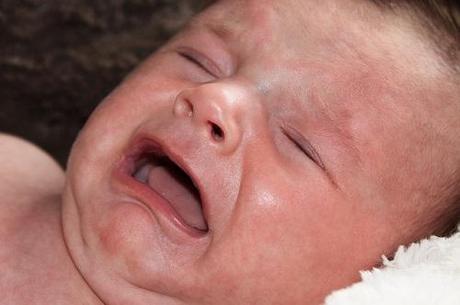Starting solid foods is a big event in your baby’s life. It is his first step towards independence.
Your little one is eagerly trying the new food you gave him. You are also proud to see your munchkin munching on and getting a taste of the food you offered.
But wait; what is the rash that has just developed around his mouth! Why is his lips swollen?
You panic, calls your pediatrician and he says it’s a food allergy.
Yes along with the introduction of solids in a baby’s diet comes the risk of food allergies.
In this article I am giving a brief description on what food allergy is, symptoms of food allergy in babies and what precautions to take to avoid food allergy.
Food Allergy in Babies:
A food allergy is when the body’s immune system mistakenly recognizes a certain food as harmful and responds by releasing chemicals called histamines in an effort to fight it off. The histamines in turn, cause a variety of symptoms that can range from a mild rash to difficulty breathing.
Food allergies are common in babies and young children. Up to eight per cent of children under three years are estimated to have a food allergy.
With clear understanding of what a food allergy is and by following what your pediatrician says, the impact of food allergy can be kept to a manageable level.
What are the signs and symptoms of food allergy in babies?
The symptoms of food allergy mostly occur within a few minutes to an hour of eating. Symptoms of an immediate food allergy are usually mild to moderate.
Though rare, sometimes symptoms can be severe and are called anaphylaxis and can be life-threatening. Severe symptoms require immediate medical attention.
Below are the most common signs and symptoms of food allergy:
Mild to moderate symptoms:
- Hives (swollen itchy red welts on the skin)
- A red and itchy rash around the mouth, tongue or eyes
- Mild swelling, particularly of the lips, eyes and face
- A runny or blocked nose
- sneezing and watering eyes
- Nausea and vomiting
- Tummy cramps and diarrhea
- A scratchy or itchy mouth and throat
Severe symptoms (anaphylaxis):
- Wheezing or chest tightness, similar to a severe asthma attack
- Swelling of the tongue and throat, restricting the airways
This can cause noisy breathing (especially on breathing in), a cough or a change in voice
- A sudden drop in blood pressure (called hypo tension) leading to shock
- Dizziness, confusion, collapse, loss of consciousness and sometimes coma
How to prevent food allergy in babies and toddlers?
Unfortunately, there is no cure for allergies.
Food allergies are particularly unpredictable and terrifying for kids and parents. But there are ways to help you recognize, treat and even prevent them.
Ways by which you can reduce your child’s risk of allergies:
- Exclusively breast-feed your babies for at least four months.
- If you can’t breast-feed, or you plan to supplement breast milk with formula, ask your doctor about hydrolyzed formula. You can also read the advantages and disadvantages of formula feeding.
- When your baby starts eating solids, introduce foods one at a time and watch her after she eats. Wait for at least three days before you introduce another new food.
You can read about the four/seven day rule to be followed while introducing new foods.
- Know about the common foods that causes allergy
The most common food allergies are to milk, eggs, wheat, soy, peanuts, tree nuts, fish, and shellfish. They account for 90 percent of food allergy reactions.
- Delay the introduction of common allergy-causing foods in your baby’s diet. Don’t introduce egg whites, wheat, and cow’s milk until your baby turns 1; peanut butter and shellfish until age 2 or 3.
- Food allergies run in families, so babies whose parents have allergies are at higher risk (particularly if both parents do).
In such cases it is good to talk to your pediatrician before introducing any foods that you suspect will cause an allergic reaction on your baby.
- Children with severe eczema have a higher risk of food allergy. Talk to your pediatrician before introducing solids.
- If your baby is diagnosed having a food allergy then avoid giving the problem causing food again. The best treatment for a food allergy is to completely avoid the problem causing food.
- When giving packaged foods, always make it a practice to read the food label and check the ingredients. This can help you to keep your baby safe from common allergens.
- Make sure the baby sitter or daycare person is aware about your baby’s food allergy. You can also read 10 things you ought to think before choosing the daycare for your child.
The happy news is that most kids with food allergies outgrow them. Many food allergies, such as egg and milk are outgrown during childhood whilst allergies to peanuts, nuts, fish and shellfish tend not to go away.
Hope you liked this article on the common signs and symptoms of food allergies in babies.
Let me know if your child was/ is allergic to any foods and how you found it out. Would be helpful to a lot many parents here.
Please share this article in your Facebook and twitter profiles.
Please subscribe to the newsletters of Bumps n Baby to stay updated.







